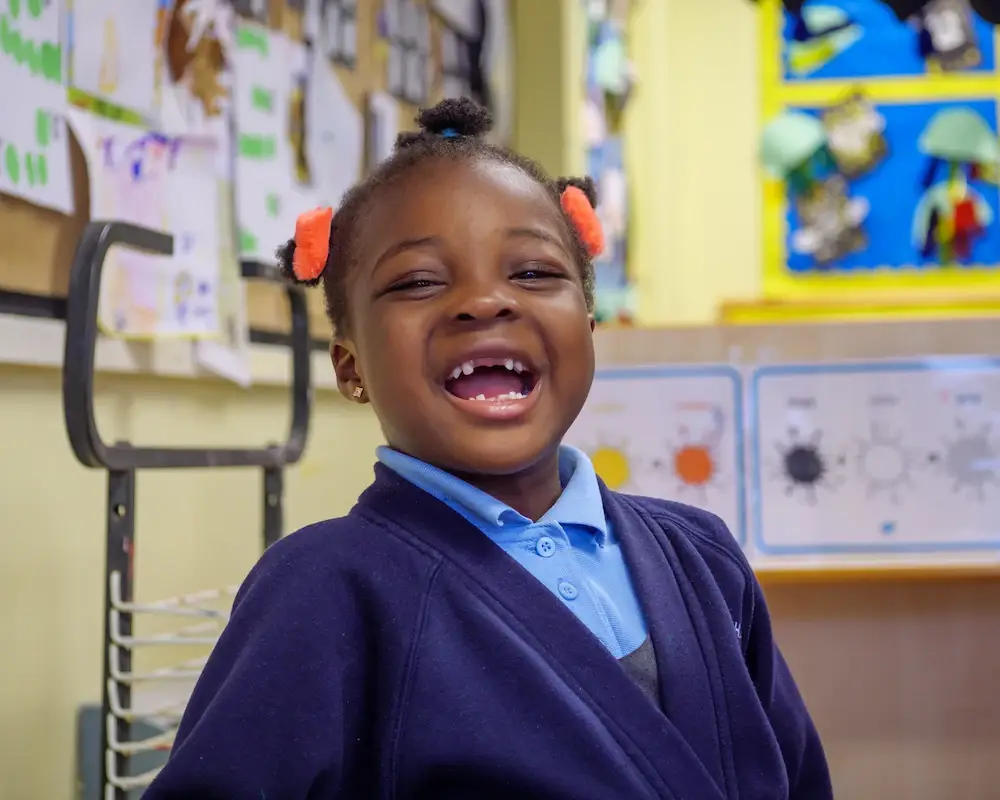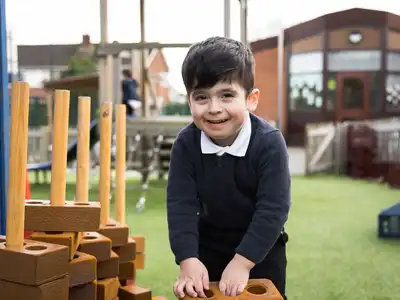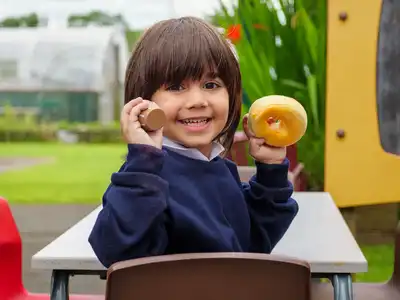This article explores the principle of the unique child, which is part of the early years foundation stage framework. It discusses why it matters, what it means in practice and how you and your staff can embed it across your early years provision.
As a primary headteacher or early years leader, a vital part of your role is to guide and support your early years staff to provide the best possible start for every child. Together, you shape the foundations of learning for the youngest children from the very beginning of their educational journey.
This article is part of a series exploring the four overarching principles of the early years foundation stage: the unique child, positive relationships, enabling environments, and learning and development.
Why the unique child matters
The early years foundation stage statutory framework sets out a clear expectation: “Every child is a unique child, who is constantly learning and can be resilient, capable and self-assured” (Department for Education, 2024). This principle recognises that each child is an individual, developing at their own rate, in their own way, while resting on a shared understanding of how children typically learn and develop.
Continuous assessment acts as a bridge connecting what we know from evidence about typical development with what we notice about each individual child (Siraj et al., 2016; Sylva et al., 2004). This helps you and your staff to build a picture of each child’s strengths, interests and needs. You then use this understanding to connect intended learning with what each child already knows and can do, and with what matters most to them (Ofsted, 2023).
Implementing the principle of the unique child means recognising every child has their own strengths, needs and fascinations. When you and your staff know about child development and use ongoing assessment effectively you can tailor learning and care. This means every child makes the best possible progress from their own starting point (Sylva et al., 2004; Nutbrown, 2012).
Research shows that high quality early years settings, where staff personalise provision in this way, are associated with greater engagement, confidence, and sustained progress for children (Sylva et al., 2004).
Putting the child at the heart of assessment
The principle of the unique child comes to life in the continuous cycle of noticing, interpreting and responding to what each child knows and can do, and using that knowledge to nudge learning forward.
The 2024 statutory framework describes this process clearly: “Ongoing assessment is an integral part of the learning and development process. It involves practitioners understanding children’s interests and what they know and can do and then shaping teaching and learning experiences for each child reflecting that knowledge.”
High-quality settings prioritise these three approaches to support their ongoing assessment:
- Strong relationships: Practitioners invest time in getting to know each child and their family. This helps them understand children’s backgrounds, interests and ways of learning, and builds trust that supports emotional wellbeing.
- Observation: Practitioners use regular observation to build a picture of each child’s strengths, interests and needs. Understanding what each child enjoys, how they learn best, and any areas where they may need extra support informs teaching that is both ambitious and developmentally appropriate.
- Responsive teaching: Practitioners adapt the setting[KT3] environment, routines and learning experiences to reflect children’s needs and interests. This means responding flexibly and confidently to support every child’s learning and development.

How to support your early years team
As a leader, you establish the culture for how your early years staff support each child’s learning journey. Here are four practical ways to strengthen this:
- Invest in ongoing professional development: Identify and prioritise training opportunities that build staff expertise in child development, your early years curriculum and inclusive practice. Encourage staff to share learning from courses, webinars or peer observation, so best practice is continually refreshed and embedded.
- Create systems for regular reflection: When staff have structured opportunities to discuss observations and plan together, provision becomes more responsive and ambitious (Sylva et al., 2004). Recognising that time is a common barrier, protect short, regular slots for team reflection – for example, leading story or singing time yourself so staff can share and discuss their observations informally. You can also help by keeping observational assessment manageable, encouraging reflections that are verbal, informal and focused on noticing rather than recording.
- Strengthen partnership with families: Provide staff with resources and time to connect with families early and often, through home visits, informal conversations or regular updates. Some staff may feel less confident about initiating these relationships. You can help by modelling effective communication, sharing examples of positive engagement, and creating a culture where staff feel equipped and supported to connect with families. Research shows that strong family engagement is linked to improved outcomes for children (Sylva et al., 2004).
- Equip staff to support children with additional needs: Ensure staff have access to ongoing training and clear pathways for seeking extra support. Offer guidance and resources on adapting learning experiences, environments and routines to meet diverse needs, and foster a culture where staff feel confident to act quickly and collaboratively when a child needs help.
By embedding these approaches, you can foster a team culture where every child is recognised and supported.
Case study: Knowing the unique child in practice
Find out how Dixie-Louise Dexter and Nicola Middleton at Ashby Hill Top Primary School get to know each unique child and support their individual development in these case studies.
Starting strong: how to value the unique child in early years. How can early years settings put individual children at the heart of their practice? Two expert practitioners describe how getting to know the unique child and responding to insight on whole-class needs means they can meet children’s needs from the start.
Four ways early years settings can be more inclusive. How can early years settings create a truly inclusive environment for every child? Expert practitioners explain four approaches their early years team takes to provide tailored support from the very start.
Questions for staff reflection
Use these questions to evaluate how your setting implements the principle of the unique child, and to identify practical next steps:
- How do you ensure every child’s developmental pathway is fully understood and supported?
- How are you using what you notice in everyday observations to actively shape teaching and learning?
- How do you know your observations are leading to richer, more meaningful learning experiences?
- In what ways could you involve families more in understanding and supporting their child’s development?
Summary
Every child is unique: this belief sits at the heart of great early years practice. It’s not about doing more, it’s about looking closer – using your observations, relationships, and knowledge of how children grow and learn. When you notice, value and respond to what makes each child unique, you can apply the evidence on how children typically develop, and adapt it to help every child flourish in their own way.
References
- Department for Education (2024). Statutory Framework for the Early Years Foundation Stage.
- Sylva, K., Melhuish, E., Sammons, P., Siraj-Blatchford, I., & Taggart, B. (2004). The Effective Provision of Pre-School Education (EPPE) Project.
- Mathers, S., Eisenstadt, N., Sylva, K., Soukakou, E., & Ereky-Stevens, K. (2014). Sound Foundations: A Review of the Research Evidence on Quality of Early Childhood Education and Care for Children Under Three.
- Ofsted (2023). Best start in life part 1: setting the scene.
- Nutbrown, C. (2012). Foundations for Quality: The Independent Review of Early Education and Childcare Qualifications.
- Siraj, I., Kingston, D., & Melhuish, E. (2016). Assessing Quality in Early Childhood Education and Care.
- Woodhead, M. (2006). Changing perspectives on early childhood: theory, research and policy.



